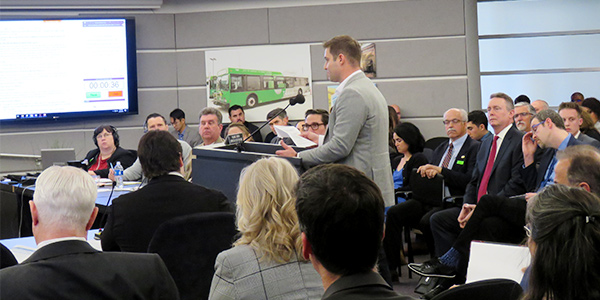By Hudson Sangree
SACRAMENTO, Calif. — California’s grid operator, government agencies and utilities bolstered actions this week to prevent the spread of COVID-19, in keeping with the state’s increasing limits on residents and businesses.
CAISO said Tuesday it would extend its ban on in-person meetings at its Folsom headquarters until at least May 1. The ISO previously established the restriction through April 1 to protect its employees and prevent operational disruptions. (See RTOs Take Steps to Address COVID-19’s Spread.)
“These measures, part of our pandemic response plan, are intended to protect our staff, customers, stakeholders and our community, and to fulfill our critical mission to reliably operate the grid, as important as ever during these trying times,” CEO Steve Berberich said in a statement.
CAISO plans to host meetings via teleconferencing and webinars. It suspended non-essential business travel for its employees and stopped tours of its facilities.
“To maintain reliability of electricity transmission, critical staff essential to the ISO’s core business services, such as grid operators, continue to work at the ISO control centers, and the coronavirus developments have had no impact to the system or markets,” CAISO said.
California Energy Commission Chair David Hochschild announced Tuesday the CEC will postpone meetings that could draw more than 250 people and will provide remote participation options for all other meetings and gatherings. Many commission staff members will be teleworking at least through the end of March, he said.
“Internally, we are quickly implementing processes to minimize disruptions to the Energy Commission’s workflow. Our focus is to ensure business continuity at the Energy Commission, including grant administration and invoice processing,” Hochschild said in a statement.
The California Public Utilities Commission told utilities under its jurisdiction — including Pacific Gas and Electric, Southern California Edison and San Diego Gas & Electric — to stop disconnecting customers who can’t pay their bills.
“In these unsettling and unprecedented times, many people are concerned about the health and safety of themselves and their loved ones, said CPUC President Marybel Batjer. “They should not also have to worry about their essential utility services being shut off for non-payment because they are unable to report to work due to illness, quarantine or social distancing.”
The protections — spelled out in a letter from CPUC Executive Director Alice Stebbins to the electric service providers — apply retroactively to March 4, when Gov. Gavin Newsom declared a state of emergency in California. The order still must be ratified by the commission.
Some utilities, including PG&E, had already announced a voluntary moratorium on disconnections due to nonpayment. PG&E’s moratorium, announced March 12, applies to both residential and commercial customers, the utility said.
The Sacramento Municipal Utility District, which also has stopped disconnecting customers who don’t pay their bills, said Wednesday it was closing its buildings to the public through at least April 17 and plans to handle all customer business online and by phone.
“Most importantly though … all SMUD outage response levels remain unchanged and all functions necessary to run the power system will operate as normal,” it said.
A growing number of Californians are under “shelter-in-place” orders, with residents told to stay home and avoid contact for at least the next three weeks. Seven of the San Francisco Bay Area’s nine counties have issued the orders, along with counties in the Sacramento regions. Violators could be convicted of misdemeanors.
Many nonessential businesses, such as restaurants and movie theaters, have shut down, and almost all schools are closed, a condition the governor said Tuesday could last through the end of the academic year.
Millions of residents staying home could alter California’s typical “duck curve” of electricity demand, which peaks in the morning and evening when people are home and drops midday, as solar output ramps up, when they’re at work and school.
A CAISO spokeswoman said Wednesday it was too soon to tell how the pandemic is affecting electricity demand, especially because the weather has been cool and rainy in recent days, but the ISO is monitoring the situation for changes in load and trends in customer demand.





